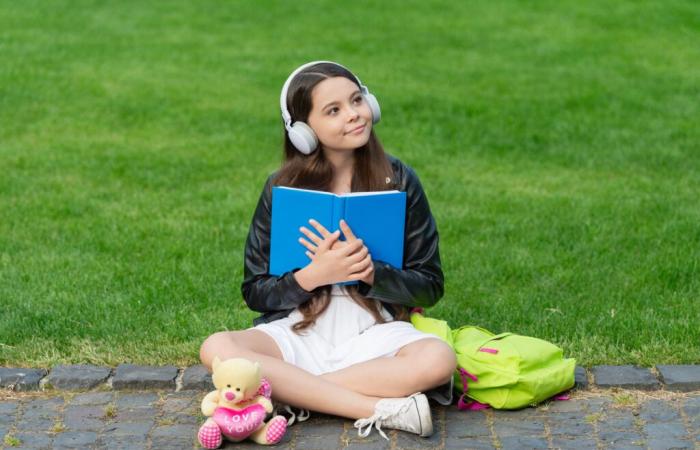C Belgian
46% of Belgians have not opened a book in 2022 according to Statbel. This figure highlights a clear trend of decline in traditional reading, particularly among younger generations, despite being immersed in a digital culture. Between series, podcasts and social networks, traditional book media seem to be losing momentum.
However, it would be hasty to conclude that Belgians are turning away from all forms of literature. The growing success of podcasts, particularly on platforms like Spotify, shows that oral stories are attractive.
Spotify: audio as a new gateway to reading
Spotify’s strategy is clear: democratize access to literature by adapting to current consumption patterns. While the platform has already become essential for music and podcasts, it now hopes to attract a wider audience with audiobooks. Benoit Dubois, former director general of Adeb, the association of Belgian publishers, analyzes this trend : “Audio books are part of a transformation of cultural practices. They allow access to literary works in a different way, by listening to them, in moments when physical reading is impossible, such as on transport or while cooking.”
According to him, this new offer could reach non-reading audiences: “This new audience could be tempted by this more accessible and more flexible format. This does not mean that they will become avid readers of paper books, but it is an interesting entry point.”
However, this change in format is not without raising questions about the profound impact of reading. Reading a book, turning its pages, immersing yourself in the text, is a very different experience from listening to an audio story. The former director of the publishers’ association tempers: “There is a fundamental difference between reading and listening. The audiobook can accompany, but it does not replace the concentration and reflection that traditional reading involves.”
Traditional bookstores facing the challenge of audio books
Is the rise of audiobooks a threat to traditional bookstores? On this subject, Pascal Colombel, director of the Tropismes bookstore located in the Galerie des Princes in Brussels, is rather reassured.
“The audio book only represents a tiny part of our turnover. We have around 50 references in store. These are only alternatives for customers with vision problems or when the paper book cannot be found.”
For him, the loyalty of his customers in paper format remains undeniable. Even in the face of digital innovations, he believes that his bookstore’s customers will not change media overnight. “The arrival of audiobooks on Spotify doesn’t worry me. My customers like the book as an object, the touch, the smell of the paper. It’s part of the reading experience.”
However, Pascal Colombel recognizes that audio books could attract a new clientele: “This could reach a public who is not used to reading books, and that is very positive. But to say that this will bring customers back to bookstores, I doubt it. Reading habits run deep and don’t change so easily.”
He also evokes the concern caused by the crisis at the Filigranes bookstore, a Brussels institution in difficulty: “This is very bad news for Belgian culture. Filigranes is a major player which, if it disappears, would leave a huge void. We are more colleagues than competitors. Bookstores must adapt together, but remain a cultural pillar in the local fabric.”
An opportunity to redefine the place of reading
The arrival of audiobooks on Spotify could ultimately open a new chapter in the way we consume literature, without supplanting traditional formats. If it attracts new fans, it is not an immediate threat to bookstores, but a coexistence of formats.
The real challenge lies in the capacity of these new practices to strengthen interest in literature in general. Audio books, with their practical and accessible format, can appeal to non-readers and fit into the daily lives of Belgians. But for the moment, they remain a complement, an extension of literary culture, and not a radical revolution.
Regardless, with this new offering, Spotify opens a door to a future where books, whether audio or paper, could find new ways to exist and adapt to the challenges of our time.






